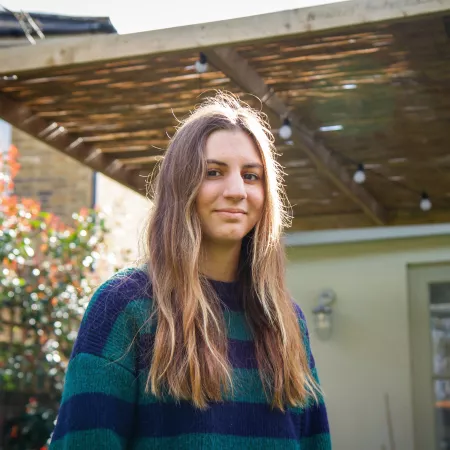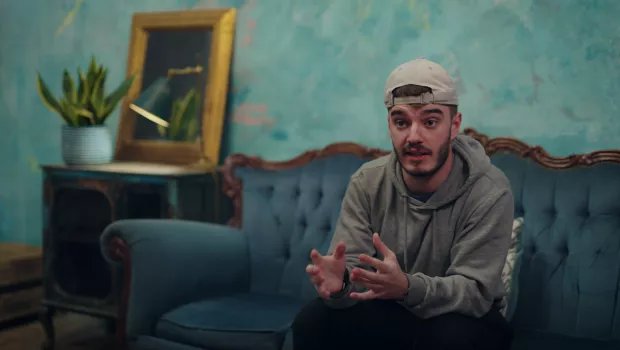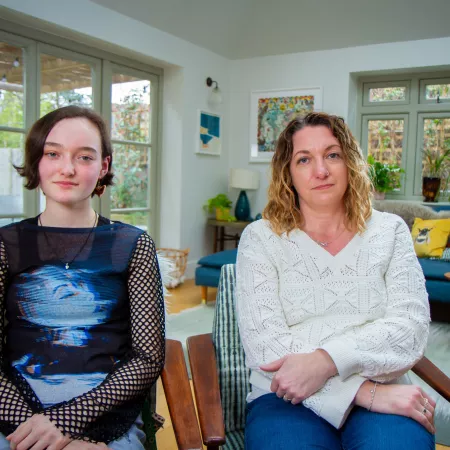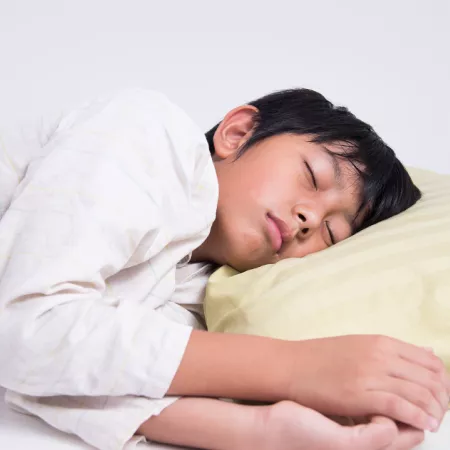
Asking me about my mental health
Tips from young people living with epilepsy about how to check in with them and their mental health, whether you're a friend or a professional supporting them.
Are you struggling with anxiety?
Epilepsy and anxiety go hand-in-hand. This section of the Mental health and Wellbeing Space will help you understand why, and offer techniques which might help.

For lots of people it’s extreme worry, nervousness or a fear of losing control. For others it can cause unease and panic.
Anxiety is a common emotion that many people experience, from mild to more severe forms. And it’s ok to feel anxious, especially during times of stress. Anxiety can motivate us: it’s not always a negative emotion. But it affects everyone differently, and sometimes anxiety can become more intense or all consuming, which can really impact on your mental health and wellbeing. What’s important is how you manage your anxiety, and that you find the best coping mechanisms to suit you.
Seizures and anxiety often go hand in hand. The fear of having a seizure, not knowing where or when it could happen can make you feel anxious. An epilepsy diagnosis can also cause anxiety, so can feeling excluded from doing the things you enjoy because of your epilepsy. Anxiety can also be a side effect of some ASMs (anti-seizure medications). It’s a natural human emotion so be kind to yourself if you’re anxious and remember you’re not alone. Since Covid-19, 1 in 6 people have experienced some form of anxiety, without living with epilepsy too.
Anxiety can cause panic attacks and the symptoms are very similar to some seizures, lasting between 5-20 minutes. Knowing the symptoms of anxiety could reduce their impact and your stress levels. These include:
Other young people with epilepsy describe the impact on their mental well being as:
I’m] constantly anxious about when and how bad my next seizure will be.Young person with epilepsy
I was scared to go out by myself for a good year and a half… my epilepsy has caused so much anxiety.Young person with epilepsy
Young people with epilepsy who responded to our survey told us
99% of young people, who responded to our survey, told us living with epilepsy has had an impact on their mental health
66% of young people, who responded to our survey, told us living with epilepsy has had an impact on their physical health

I was diagnosed with absence epilepsy at eleven years old. Since then I have been on a journey with my anxiety.
Focus on your senses: 5 things you can see, 4 things you can hear, 3 things you can touch, 2 things you can smell, 1 thing you can taste.
The 10 second rule: Focus on getting through the next 10 seconds and breaking each hour into manageable chunks of time. If you feel that worry start to rise, wait 10 seconds before you respond. That's it. Just stop.
Practice square breathing: Breathe in for 4 seconds, hold for 4, out for 4, hold for 4 and repeat.
Have you heard of CBT (Cognitive Behaviour Therapy)? If you are struggling with severe anxiety, visit your GP and they may refer you for Cognitive Behaviour Therapy.
Practice mindfulness when you’re brushing your teeth, eating a meal, walking outside. Actively using the senses to make yourself fully present with whatever you are doing.
Try Art Therapy such as adult mindful colouring.
Guided Meditations to support with breath work are available for free on Youtube.
If you feel you are experiencing anxiety, please contact your GP.
If you are struggling with anxiety, remember, you are not alone.
Try downloading one of these apps that young people recommend:
If you feel like you would like to talk to someone, reach out to one of the organisations below. There are people ready and waiting to support you:
Find further signposting and how you can receive support from Young Epilepsy.
For anyone struggling with their mental health, we have partnered with SHOUT, a FREE 24/7 confidential text service.
To start a conversation Text PURPLE to 85258
Explain to your friends how you are feeling and why. I think you will be surprised how understanding and supportive people can be . xxThroughout our #OnTopOfEpilepsy campaign, supporters shared messages of support


Tips from young people living with epilepsy about how to check in with them and their mental health, whether you're a friend or a professional supporting them.

Learn how young people with epilepsy can access mental health support, including where to find help and tips for starting the conversation.

Discover helpful tips for improving sleep quality, especially for those with epilepsy, from bedtime routines to creating a sleep-friendly environment.
A space for young people, aged 13+, who are living with epilepsy, for them to share, learn and find support.